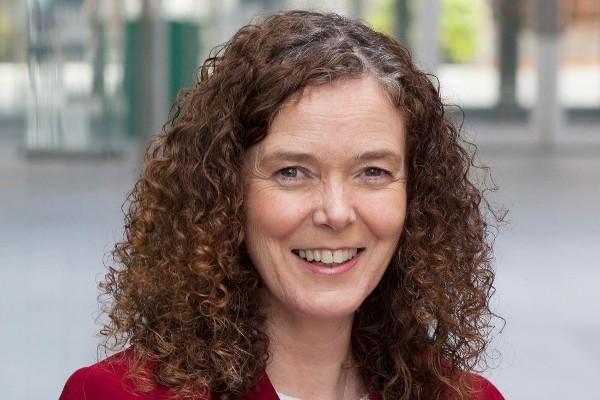
Engineers Week 2020 runs from Saturday 29 February to Friday 06 March, and we are delighted to mark the occasion with an interview featuring Julie Donnelly, Tyndall’s very first engineer. Julie has had an exciting and varied career here in Tyndall spanning 35 years and is now Programme Manager for Ascent - European Nanoelectronics Network .

When and how did you start out at Tyndall?
I was hired in the summer of 1985 straight from college in Dublin. I had just completed an honours degree in Maths and Physics and I was delighted to get a job in Ireland, as there were really very few jobs available to graduates at the time. I was just lucky my college friend spotted the ad in the Sunday Independent.
It was really a very exciting opportunity to get a job in such an advanced facility. At that time, we were called the National Microelectronics Research Centre (NMRC), and I was employed as a process engineer in the Silicon Fabrication Laboratory. There were only about 40 staff and students here, with the visionary Prof Gerry Wrixon as our Director. Ireland was just starting to transform from a rural economy into the advanced technology-based economy that we have today and the NMRC was definitely a key part of that initial change.
"I think that engineers take a very practical approach to problem solving and so, in the research world that I work in, you need engineers that have a strong fundamental knowledge of the technology we work with, but also have a practical approach that can turn the science in to applications that benefit us all."
You came to Tyndall straight out of university; what inspired you to pursue engineering and how have you found engineering as a career?
I always loved physics in school and college. I feel really lucky that I’ve continued to work in physics, and even more so that I work in a research centre that is dedicated to excellent science. Our research covers electronics and photonics, and spans from atoms through to systems. That means we don’t just work on fundamental science; we also look at the applications and how we can best use technology to improve people lives.
I started out as a process engineer where we fabricated the early silicon devices that enabled the advances we see now in computing and communications. Even now I am still amazed at how our technologies are being adapted and used more broadly in applications that are as diverse as farming and space, as well as a real impact on how we use technology in the medical word.
What are the best changes you’ve seen here over the last 35 years?
When I started at the NMRC I was given a hall door key and a lab book and you just had to use your own initiative to figure everything out. This was before the internet and email so you had to sit down and work with people to share knowledge and develop new ideas. We were much smaller then of course, so you knew everyone and didn’t need as many business systems and procedures.
One of the big changes I see is how complicated things have become over the years, despite the arrival of technologies that have theoretically made our lives easier. In the early days you just had to sit down with people when you wanted to collaborate, and many of those early collaborators are still friends today.
Julie Donnelly (BSc AppSc) is the Programme Manager for the European ASCENT Programme at Tyndall. Julie has been at Tyndall since 1985 and has extensive experience in programme management and, in particular, managing the interface between external researchers and Tyndall.
In 1995 Julie was appointed Silicon Fabrication Manager and in 2000 was appointed Technology Manager with responsibility for the interface between Tyndall and its commercial customers. Throughout this time Julie was directly involved in many research projects, including co-ordinating an EU project investigating novel silicon process techniques for wearable applications.
In 2004 she was appointed Programme Manager for the National Access Programme at Tyndall and for 11 years successfully managed the overall programme which funded 350 research projects involving over 600 researchers with a total budget of €15 million. She is currently managing the Horizon 2020 funded ASCENT programme which offers access to leading nanoelectronics infrastructure in Europe.
